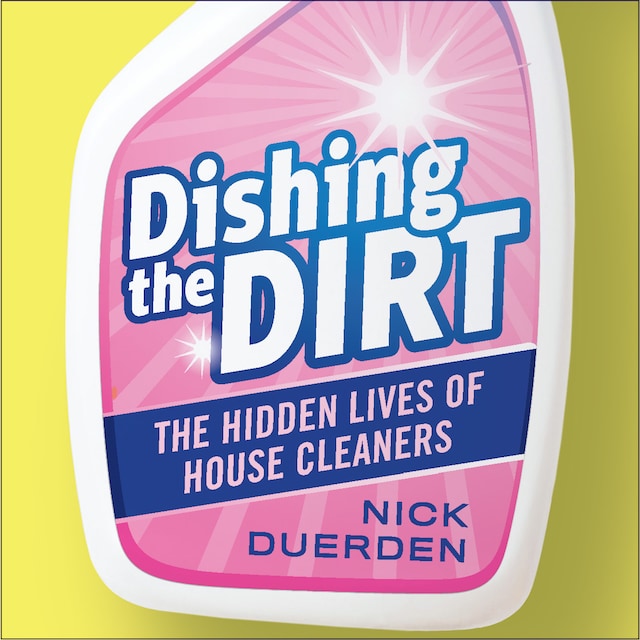
Dishing the Dirt
The Hidden Lives of House Cleaners
Opis książki
'A jaw-dropping investigation' – THE BOOKSELLER
'Succeeds brilliantly in dismantling casual assumptions about the drudgery of cleaning' – THE GUARDIAN
'A great book, well researched, funny and poignant. I loved it.' – KIT DE WAAL
Dishing the Dirt tells the jaw-dropping stories of London's house cleaners for the first time.
Journalist Nick Duerden spoke to a vast array of domestic helps for this insightful, surprising and gripping non-fiction book.
We hear from immigrants who clean suburban family homes to butlers who manage the homes of the super wealthy, and from joyful cleaners and entrepreneurs to escaped victims of human trafficking.
Then there are women who dust nude and male cleaners who have to fight off wandering hands. And the crime scene cleaners.
With the revelation of Maid by Stephanie Land and the cleaning tips of Mrs Hinch's Hinch Yourself Happy, Dishing the Dirt will turn all of your assumptions about cleaners upside down.
About the Author
Nick Duerden is a writer and journalist whose work has appeared in The Guardian, the Sunday Times, the Daily Telegraph, the i paper, and GQ. His books include Exit Stage Left, Get Well Soon: Adventures in Alternative Healthcare, A Life Less Lonely, and The Smallest Things. He lives in London with his wife and two daughters.
Extract
Prologue. Clocking On
It was as if she were invisible, like she wasn't even there. Or, perhaps more accurately, like she didn't really count, not in any tangible sense, this mostly silent domestic cleaner with the broken English whose back was perpetually stooped over the vacuum cleaner, the dustpan and brush, the damp mop; someone who likely knew her way around the utility room better than the homeowners themselves.
Today, the wife was away on business, as she frequently was, but the husband wasn't here alone. The marital bed was not empty.
'A different woman,' she says. 'Younger.'
And he didn't hide this from you, wasn't embarrassed, ashamed of parading his affair so brazenly under your nose?
She shakes her head, and smiles tightly. 'No,' she says. 'No.'
She was seemingly in his confidence, then, but not through any prior agreement, a finger to the side of the nose, and nor was he paying her for her silence, her implicit complicity. 'I don't think he even considered me,' she says. 'Or my reaction.' She was merely part of the furniture, a once-weekly presence in the house who mutely got on with her work as she always did, over three floors, three bedrooms and two bathrooms: the vacuuming, the polishing, the dusting...
...
In the 1980s, both husbands and wives were now required to go out to work, to pursue careers. This left little time for domestic upkeep... There was no shortage of willing char ladies.
In the 21st Century, we are willing to delegate more, specifically to pay others to do the work we'd rather not do ourselves, even if we cannot really afford it. A wave of cheap immigrant labour entered the UK between 2000 and 2020, especially from the new EU member states in eastern Europe. Better to pay a Magda from Poland, say, £30 a week to run the Hoover around the house for a few hours than to save the money for a rainy day.
...
Those that clean for Londoners are a silent army. They bring order to our lives, they put out the bins, and relieve us of at least some of the myriad pressures of modern life. They are privy to our indiscretions, our peculiarities, our curious habits. They put up with us, which isn't always easy because some of us are complicated souls.
But who are the members of these well-drilled regiments? What are their stories?
Buy the book and start listening



